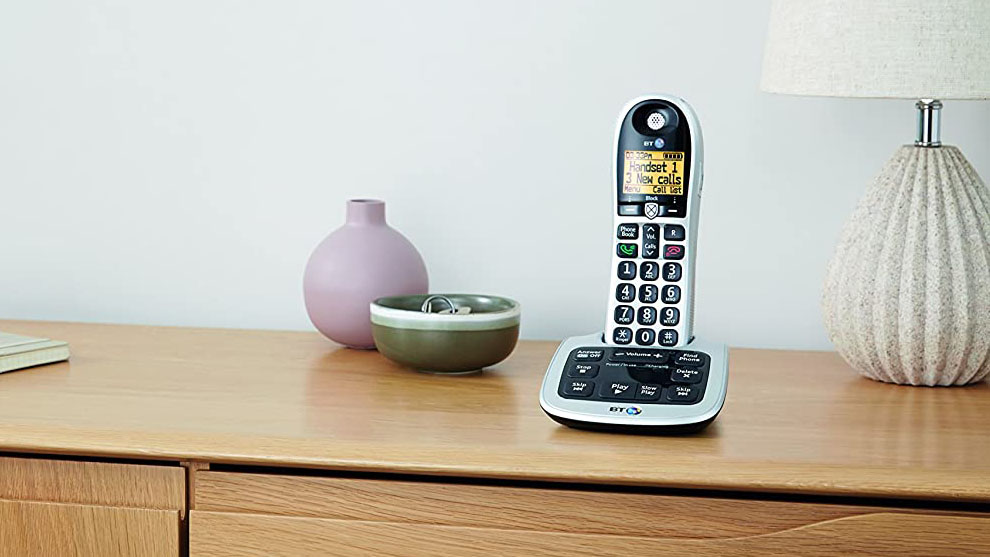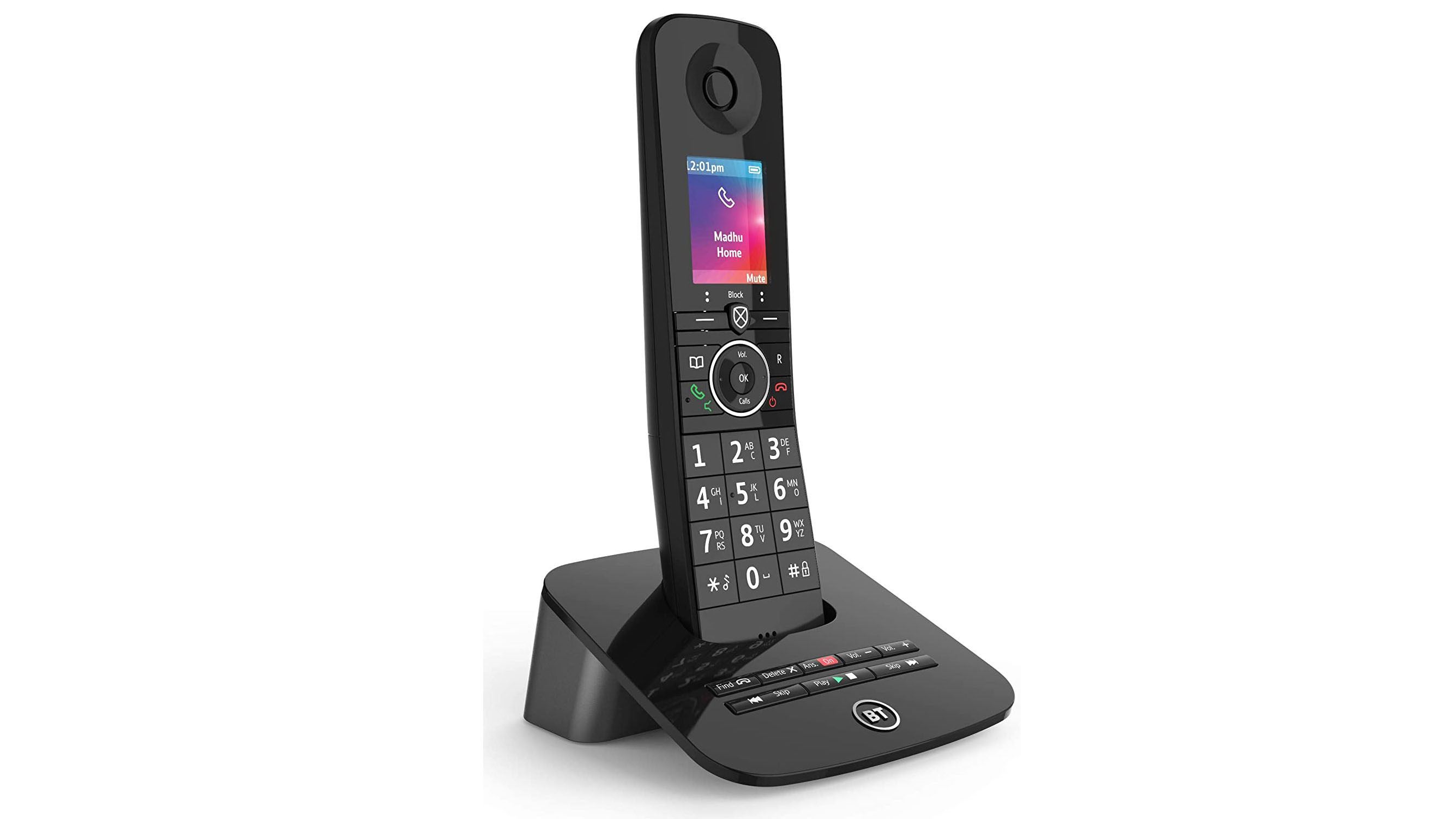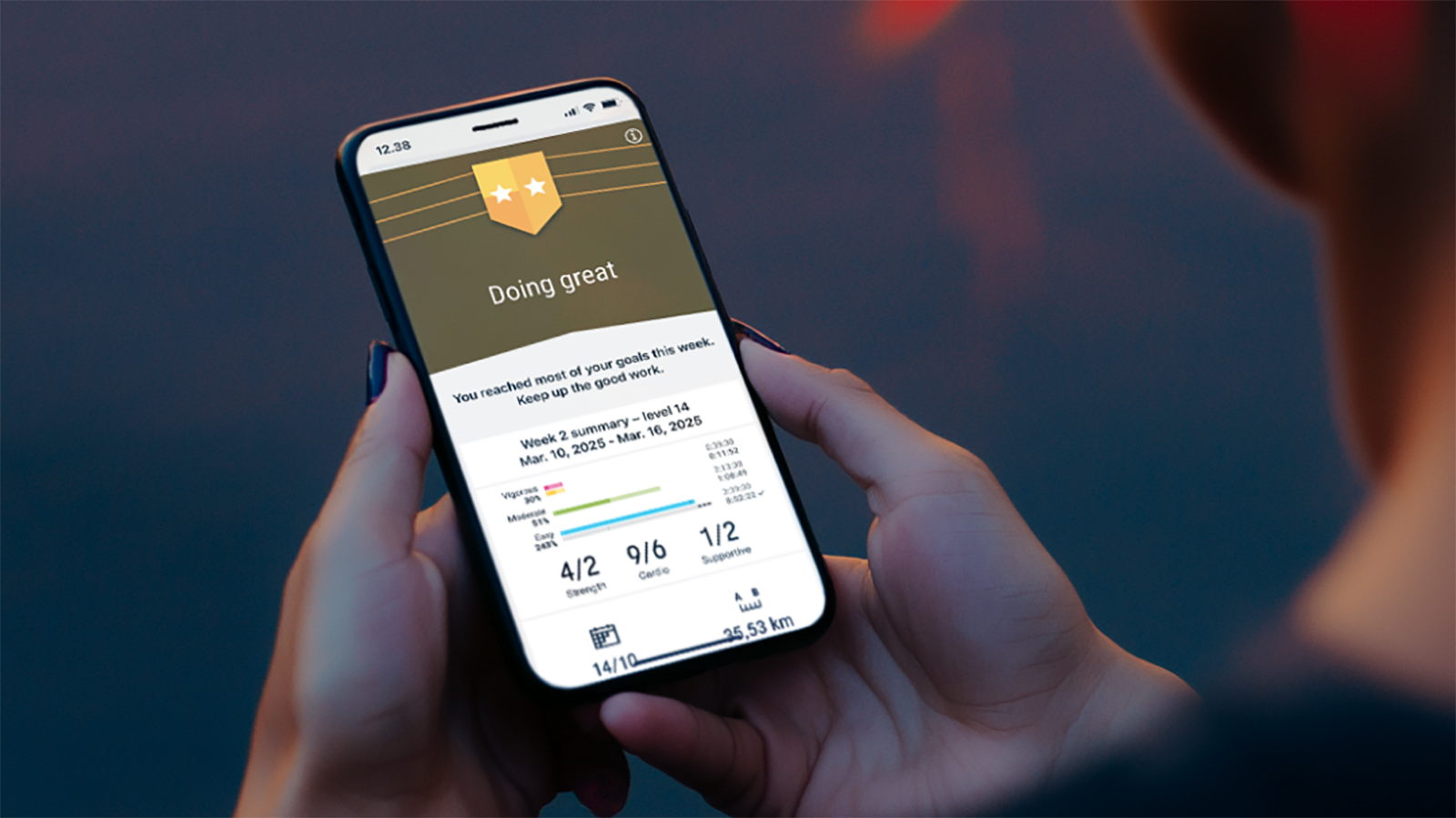
Landline phones are so much a thing of the past that even T3 editor Duncan Bell's parents have now ditched them. However, while many of us tend to use mobiles for everything nowadays, the UK still has a full and functioning landline network and plenty of folks still have at least one phone plugged into a socket somewhere in their home. Hey, speaking of which, shouldn't you go and buy one of the best landline phones from our top 10, so you can get more out of your shamefully underused landline port?
But wait! Before you do that, make sure you're up to speed with what you should be buying. There are 22 million conventional landlines up and running across the UK, and big changes are coming for them in the not-too-distant future. The network is moving to VoIP and if you don't have a compatible phone, you may be up the creek without a paddle.
When is BT moving to VoIP phones?
VoIP – Voice over Internet Protocol – is coming, but you don't have to act right now. However, in December 2025, there’s going to be a switch in technology, meaning that conventional landline phones that work using analogue technology will be phased out. The replacement is going to be a much better internet-based IP, or Internet Protocol network, which will be much more future-proofed than the current system, which relies on the leftovers of the UK’s antiquated copper wire network – although much of that has already been superseded by fibre optic cable, which VoIP makes the most of.

Why is the UK changing to VoIP?
There’s no doubt that the upgrade is long overdue. While you’ll still be able to have a landline if you want one, and there’ll be plenty of VoIP compatible landline phones to choose from, making and receiving calls should be much improved. The original telephone network in the UK is over 100 years old, and what we have currently is something of a patchwork quilt of wiring that has been spruced up in many places and replaced altogether in others.
The phone and broadband companies have got together and come up with a cunning plan that will see an entirely revitalised network launched in December 2025. The whole project is also being overseen by telecoms regulator Ofcom and the Government. The good news about the landline phone network upgrade is that you don’t have to do anything; your landline phone provider should do everything for you and notify you when that happens.
However, while the network will change without you needing to do anything, you will have to buy a new phone, if your current one doesn't support VoIP.

Will I keep the same number when VoIP comes in?
This can't be answered definitively, but it seems very likely you’ll be able to retain your existing landline number when the network shifts to VoIP. That's good news if you've had the same number for many years.
Sign up to the T3 newsletter for smarter living straight to your inbox
Get all the latest news, reviews, deals and buying guides on gorgeous tech, home and active products from the T3 experts
However, as we keep saying, your actual phone might need replacing, especially if you’ve had that for as long as your number. Saying that, anyone who’s replaced their landline handset in the last few years may well find that it will function perfectly fine, come the change.
This change may well be a good excuse to get rid of your landline forever. However, if you are a staunch landline lover, it could equally be a great time to upgrade your handset. There are plenty of VoIP-friendly models on the market already, with options that also include handsets that have been tailored for older users and those with disabilities.
A new phone can transform the way you use it, especially with the crop of latest models from the likes of Panasonic and Siemens that use the power of technology to make it easier to prevent nuisance calls. In fact, a couple of the phones we’ve tried from BT have managed to cancel out unwanted callers altogether, so that’s money well spent right there. Even more so if you’re regularly plagued by calls from scammers.

VoIP landline phones: what you need to know
Now that many of us have broadband at home the fact that VoIP landline phones are being rolled out seems sensible. This is because you’ll basically be using the internet to connect your calls in the future, which is slightly different to doing it via the failing old copper wire network.
One major benefit of this is the call quality, which should be clearer and more audible. You will, of course, need a broadband service for this to work so you may want to speak to your phone company if you’re not already signed up.
The other thing to remember with phones that use broadband, a router and a power supply to function is that they rely on services being online to function. Therefore, if you suffer a power cut you may lose the ability to make and receive calls. That’s not a problem if you’ve got a mobile phone as backup, but if you don’t it’s worth bearing in mind so you know where you are in the event of anything happening.
Why are VoIP landline phones good?
Another bonus with having a landline that uses VoIP in order to connect you is that it’s a much cheaper way of making calls. Of course, you could argue that you’ll need to have an internet connection, which you might not have had previously. On the plus side, having the internet is such a useful thing that we think the benefits more than outweigh any negatives.
While you may think it’s odd if anyone doesn’t actually have the internet at home today we realise that not everyone wants it or, in some cases, wants it but can’t get it. If that’s the case you’re probably already reading this on your mobile phone.
But, going back to the cost aspect, let’s face it, phone companies have done very nicely indeed for many years by charging you for making calls, be they local, national or international. If you’ve got people you need to speak to on a regular basis that could deliver big savings over time thanks to the power of VoIP phones.
There’s another benefit to having a VoIP phone: the system is much more durable than the old handsets that connected using dated technology, combined with a network that was knitted together using a muddle of copper wire and fibre cables.
Older phone lines are often susceptible to water ingress, which causes interference and frequently stops your connection dead in its tracks. VoIP technology might not be bulletproof, but your phone line should be less susceptible to outside interruptions than previously.
That could also save you money, because there’s less chance you’ll need to call out an engineer and suffer all the lost time and hassle that comes with that.
VoIP handsets usually have more features and functionality too, so if you buy yourself one of the best landline phone models on the market today, you'll suddenly find you have a veritable telecoms powerhouse sitting on your sideboard. In the words of an ancient BT advertising campaign, that should mean that it really is 'good to talk' on it again.
Rob Clymo has been a tech journalist for more years than he can actually remember, having started out in the wacky world of print magazines before discovering the power of the internet. Since he's been all-digital, he has run the Innovation channel for a few years at Microsoft, as well as turning out regular news, reviews, features and other content for the likes of Stuff, TechRadar, TechRadar Pro, Tom's Guide, Fit&Well, Gizmodo, Shortlist, Automotive Interiors World, Automotive Testing Technology International, Future of Transportation and Electric & Hybrid Vehicle Technology International. In the rare moments he's not working, he's usually out and about on one of the numerous e-bikes in his collection.
-
 3 overrated shoulder exercises, according to a fitness expert (and what to do instead)
3 overrated shoulder exercises, according to a fitness expert (and what to do instead)Sculpt 3D shoulders whilst minimising injury with these three alternative exercises
By Bryony Firth-Bernard Published
-
 Polar’s new subscription feature lands in the shadow of Garmin’s Connect+ rollout
Polar’s new subscription feature lands in the shadow of Garmin’s Connect+ rolloutPR genius or timing disaster? Polar’s new Fitness Programme adds adaptive training to its ecosystem
By Matt Kollat Published
